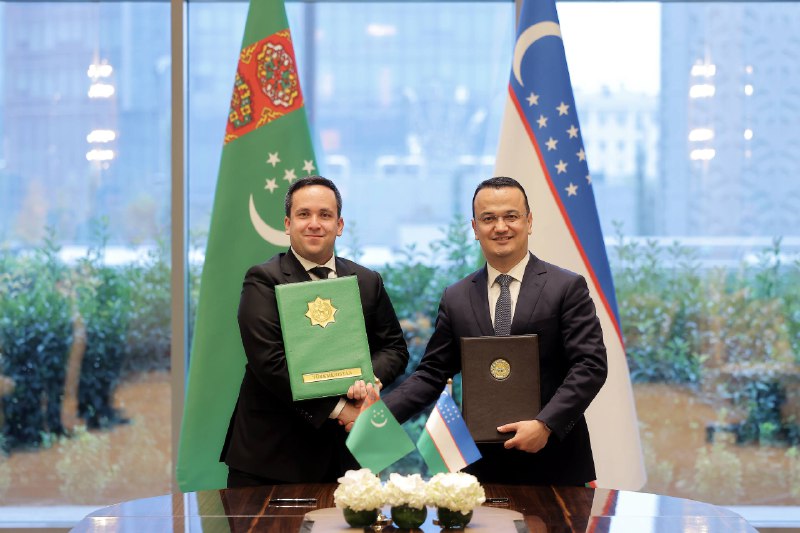TASHKENT, Uzbekistan, November 17. Uzbekistan and Turkmenistan discussed the practical aspects of the operation of the Uzbek-Turkmen Border Trade Zone, Trend reports, citing the Ministry of Investment, Industry, and Trade of Uzbekistan.
The issue was addressed during a meeting between Uzbekistan’s Minister of Investment, Industry, and Trade, Laziz Kudratov, and Turkmenistan’s Minister of Trade and Foreign Economic Relations, Nazardurdy Agahanov.
The sides agreed on the legal framework regulating the joint trade center, which is considered an important platform for expanding bilateral trade, promoting domestically produced goods, and supporting entrepreneurship on both sides of the border.
The total area of the center is 6 hectares—3 hectares on the Uzbek side and 3 hectares on the Turkmen side. If necessary, the territory may be expanded through a separate international agreement.
Citizens, as it was noted, of both countries will be able to enter and exit the border trade zone without obtaining a visa.
The opening of the Uzbek–Turkmen Border Trade Zone will allow entrepreneurs from both countries to trade freely, benefiting from shared infrastructure and simplified procedures. This initiative is expected to create new opportunities for cross-border commerce and further strengthen bilateral cooperation.
Earlier, President of Uzbekistan Shavkat Mirziyoyev and President of Turkmenistan Serdar Berdimuhamedov took part in the launch ceremony of the joint “Shavat–Dashoguz” cross-border trade zone, which includes administrative buildings for the directorate as well as customs, quarantine, phytosanitary, and veterinary services, a trade pavilion, and warehouse facilities.
In general, Uzbekistan and Turkmenistan are enhancing their commercial connections through augmented trade, energy, and transportation collaboration, where the bilateral trade exceeded $1 billion last year, with the countries targeting an increase to $2 billion. Primary focal points encompass collaborative energy initiatives, the advancement of the Turkmenbashi port, and the enhancement of customs and logistical protocols.
Stay up-to-date with more news on Trend News Agency's WhatsApp channel







